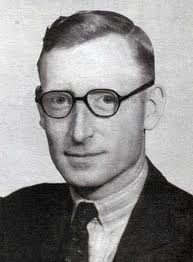-
(b.) -1905 December 22(d.)1998 October 28
Bio/Description
Flowers's first contact with the wartime codebreaking effort came when he was asked for help by Alan Turing, who was then working at the government's Bletchley Park codebreaking establishment 50 miles north of London. Turing wanted Flowers to build a decoder for the relay-based Bombe machine, which Turing had developed to help decrypt the Germans' Enigma codes. Although the decoder project was abandoned, Turing was impressed with Flowers's work, and introduced him to Max Newman who was leading the effort to break a teletype-based cipher, called "Geheimschreiber" (secret writer) by the Germans and "Fish" by the British decoding team. This was a much more complex coding system than Enigma; the decoding procedure involved trying so many possibilities that it was impractical to do by hand. In February 1943, Flowers proposed an electronic system, which he called Colossus, using over 1800 valves (vacuum tubes). Because the most complicated previous electronic device had used about 150 valves, some were sceptical that such a device would be reliable. Flowers countered that the British telephone system used thousands of valves and was reliable because the electronics were operated in a stable environment that included having the circuitry on all the time. The Bletchley Park management were not convinced, however, and merely encouraged Flowers to proceed on his own. He did so, providing much of the funds for the project himself. On 2 June 1943, he was made a Member of the Order of the British Empire (MBE).
-
Date of Birth:
1905 December 22 -
Date of Death:
1998 October 28 -
Gender:
Male -
Noted For:
Designed the "Colossus", the first programmable electronic computer -
Category of Achievement:
-
More Info:


